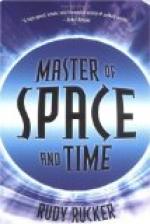Desiring more detailed information of the ocean-bed along the proposed route, Field secured the assistance of the United States and British governments. Lieutenant Berryman, U.S.N., in the Arctic, and Lieutenant Dayman, R.N., in the Cyclops, made a careful survey. Their soundings revealed a ridge near the Irish coast, but the slope was gradual and the general conditions seemed especially favorable.
The preliminary work had been done by an American company with Field at the head and Morse as electrician. Now Field went to England to secure capital sufficient for the larger enterprise. With the assistance of Mr. J.W. Brett he organized the Atlantic Telegraph Company, Field himself supplying a quarter of the capital. Associated with Field and Brett in the leadership of the enterprise was Charles Tiltson Bright, a young Englishman who became engineer for the new company.
Besides the enormous engineering difficulties of producing a cable long enough and strong enough, and laying it at the bottom of the Atlantic, there were electrical problems involved far greater than Morse seems to have realized. It had been discovered that the passage of a current through a submarine cable is seriously retarded. The retarding of the current as it passes through the water is a difficulty that does not exist with the land telegraph stretched on poles. Faraday had demonstrated that this retarding was caused by induction between the electricity in the wire and the water about the cable. The passage of the current through the wire induces currents in the water, and these moving in the opposite direction act as a drag on the passage of the message through the wire. What the effect of this phenomenon would be on a cable long enough to cross the Atlantic wan a serious problem that required deep study by the company’s engineers. It seemed entirely possible that the messages would move so slowly that the operation of the cable, once it was laid, would not pay.
Faraday failed to give any definite information on the subject, but Professor William Thomson worked out the law of retardation accurately and furnished to the cable-builders the accurate information which was required. Doctor Whitehouse, electrician for the Atlantic Company, conducted some experiments of his own and questioned the accuracy of Thomson’s statements. Thomson maintained his position so ably, and proved himself so thoroughly a master of the subject that Field and his associates decided to enlist him in the enterprise. This addition to the forces was one of the utmost importance. William Thomson, later to become Lord Kelvin, was probably the ablest scientist of his generation, and was destined to prove his great abilities in his early work with the Atlantic cable.




